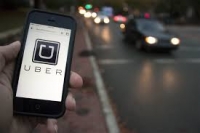Uber Lose Again
Monday 13 November, 2017 Written by Simon Quantrill/Simon Collyer
On Friday 10 November the Employment Appeal Tribunal upheld the original decision of the Employment Tribunal that the Uber drivers are workers and are not self-employed running their own independent businesses.
According to employment lawyer Simon Quantrill - on appeal Uber tried unsuccessfully to argue that it was acting as an agent for the drivers. The EAT had little time for Uber’s attempt to rely on this commercial contract concept when trying to avoid liability for statutory rights and benefits given to workers, such as paid holidays and the national minimum wage rates of pay.
The EAT agreed with the tribunal’s approach and conclusions about the merits of the claim. The tribunal was right to determine the true nature of the relationship between the drivers and Uber, having regard to all the circumstances, including the way Uber imposed its control over how the drivers were to operate and perform their work.
Importantly, the EAT said the tribunal was correct in its conclusion that the Uber contract terms and conditions, did not reflect the reality of the relationship. In particular the drivers were not in business on their own account, in a contractual relationship with the passenger every time they accepted a trip. Instead the drivers were workers, providing personal service with no right to provide a substitute, working under the control and direction of Uber.
What happens next?
Uber have said they will appeal to the Supreme Court. Experts have said, WHY BOTHER!
ABC Founder: Simon Collyer won his own case in the Employment Tribunal against Chelmsford based company Right 2 Improve Limited. Many companies try and claim their workers are self-employed thereby avoiding National Insurance, Sick Pay, Holiday Pay, Pension Contributions and in some cases the Apprenticeship Levy. The EU when it brought in the Working Time Regulations that applied to 'workers' not just employed people. Many people are dependant workers not truly self-employed. Who invoices the customer and whose customer is it? Can you substitute yourself with someone else in a way that is unfettered? These are but a couple of tests. Many companies don't have any contracts at all. Other have gone to elaborate lengths to circumnavigate the rules but in the end all are losing it seems?
1 comment
-
Comment Link
 Monday 13 November, 2017
posted by
Simon Collyer
Monday 13 November, 2017
posted by
Simon Collyer
Leave a comment
Make sure you enter all the required information, indicated by an asterisk (*). HTML code is not allowed.
Join
FREE
Here










